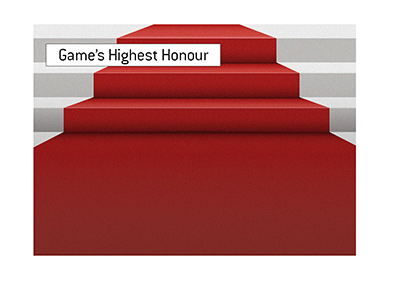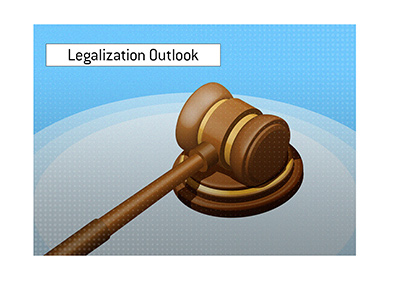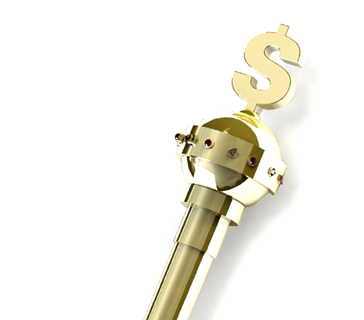 Many successful online poker players are young, maybe in their late teens and early 20's, and inexperienced when it comes to handling money.
Many successful online poker players are young, maybe in their late teens and early 20's, and inexperienced when it comes to handling money. Most poker players that I talk to don't see themselves sitting in front of a computer monitor, grinding it out playing eight tables of cash games twenty years from now. Poker is a means to an end. Many people see poker as a way of generating cash while they are young, so that they can invest in ventures that will pay the bills in the future.
If you are a young, even moderately successful poker player, you have a major advantage that older people don't have: time. Compound interest is your best friend, and even a 7-8% annual return on investment will yield you a LOT of money in 25-35 years. Sure, if you are 18 years old, you probably could care less about what you will be doing when you are 50 years old, but now is the time to start planning for the future anyways. Do you know how many 50-70 year olds there are that wish that they had started planning at an early age, and will now be forced to work well into their retirement years? Millions. Don't be one of them.
Let's take an example. Let's say that Joe Average is currently 20 years old. Joe Average is mainly a cash game player, but also dabbles in tournaments from time to time. He has done well, and currently has $120k in offline funds and $50k for his online poker bankroll. Joe Average currently rents a one bedroom pad in his city.
In my opinion, the first step that someone in this position needs to take is to take out a mortgage and buy a place to live in. It can be tough getting financing in this day and age, especially after the subprime credit meltdown, but it is still possible.
The first step is to pull your credit report and see if there are any nasty surprises on there, including outstanding collection notices. Get into contact with these companies and find out how much it will cost you to settle. Once you pay, get a letter from the company stating that you have paid in full.
Next, get your taxes in order if you haven't already done so. If it seems overwhelming to you, then hire an accountant to go through and prepare your returns. You are going to need two year's worth of tax returns when you go and apply for a mortgage. Getting your taxes sorted is also good in that it will help you avoid a potential audit down the road.
Once you have that in order, contact the bank that you normally deal with and have most of your accounts at. If you are planning on getting a mortgage without a co-signer, then plan on putting down 25% of the mortgage as a down payment. Figure out if this is feasible for you. The bank will likely want the last two year's of assessments and possibly a letter from your accountant as to how you derive your income. Don't lie about how you make your money. Tell them that you are a professional poker player. I've heard of many different schemes that people use to make it look like they are earning money as a "consultant" or whatever. Don't do it. Honesty is the best policy. Banks will want to see proof of your assets, tax returns and a large down payment, but it's still possible to get approved as a young poker player.
Find out from the bank how much you would be pre-approved for. If the bank doesn't approve you or if you can't come up with a 25% down payment, then ask your parents to co-sign for you. If this isn't possible, then you could always go the private lender route but that will end up being more expensive for you.
Find a nice place that you could see yourself living in for years to come. If you buy a place with the long-term in mind, then the day-to-day fluctuations of the real estate market won't bother you.
Do whatever you can to get into a place that you own when you are young, even if you have to ask your parents to co-sign. You are only throwing money away by renting, and each month that passes you are building up more equity in your home. Plus, your real estate investment will likely appreciate more than the rate of inflation over time.
Next step? Start investing. You can open up a self-directed account so that you can buy/sell your own investments, or you can contact a full service brokerage. The online brokerages are obviously cheaper, but a full service brokerage can give you more information regarding setting up your accounts in a way to minimize your tax liabilities.
Aim to contribute a certain $ amount to your investment funds every month. Obviously, the more the better. And since you are young, you can afford to be a little more aggressive with your investments compared to someone who is 45 years old. You have years and years to take advantage of the magic that is compound interest, so the sooner you get going, the better. $500, deposited every month and earning an average of 8% per year, would be worth $745k by the time you turned 50, if you started at the age of 20. Obviously you'd have to adjust that number based on inflation and your rate of taxation, but you would presumably also be increasing your monthly contributions to keep up with inflation as well.
Lastly, sitting on a large pile of cash can means that many different business venture possibilities will fall into your lap. The main advantage to you is that you will find many situations where you would just be providing capital and wouldn't be doing any work of your own. Obviously you would need to do comprehensive due diligence on the venture to make sure that you are comfortable with the idea and the projected numbers. Many well-known poker players have different business ventures that spin off enough cash to allow them to live the lifestyles that they want to live. Try to stay away from traditionally risky ventures such as opening restaurants and bars. Be picky about any proposals that come your way and ask plenty of questions. There are great deals out there that will supplement your income and allow you to build a stake in another asset. Don't jump at the first deal do plenty of due diligence.
Basically, the point of this article is - if you are young and sitting on a sizable bankroll, you can really set yourself up nicely for the future if you start taking action now.
There are no guarantees that you will still have a bankroll in the future. Doyle Brunson, one of the best players ever, went broke "hundreds of times" over his life. It could happen. Would you rather be broke with an apartment that is paid for or would you rather be broke in a rented apartment?
Don't be that guy that is 50 years old, playing small-stakes live tournaments and cash games in order to pay the bills. Be like Sam Farha, Eli Elezra or Howard Lederer - guys with significant business interests and assets that play poker for fun and not because they have to.
--
Filed Under: Miscellaneous King Articles




